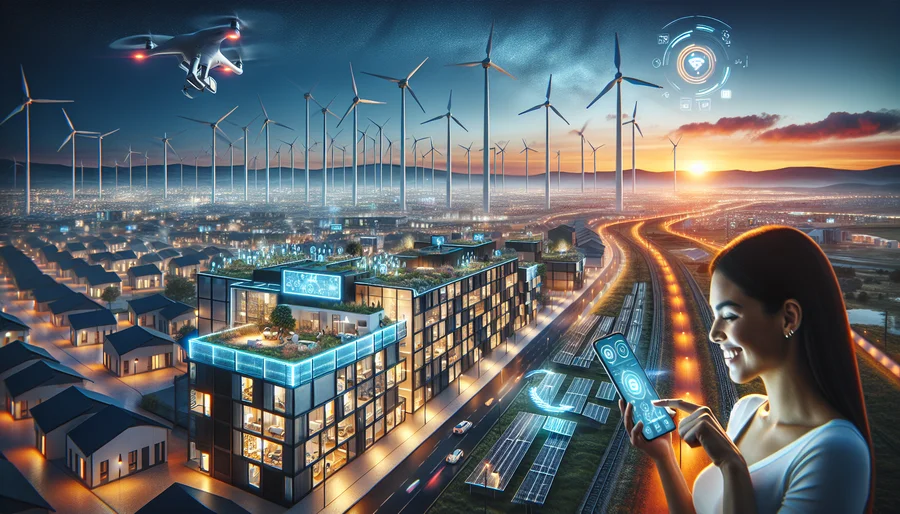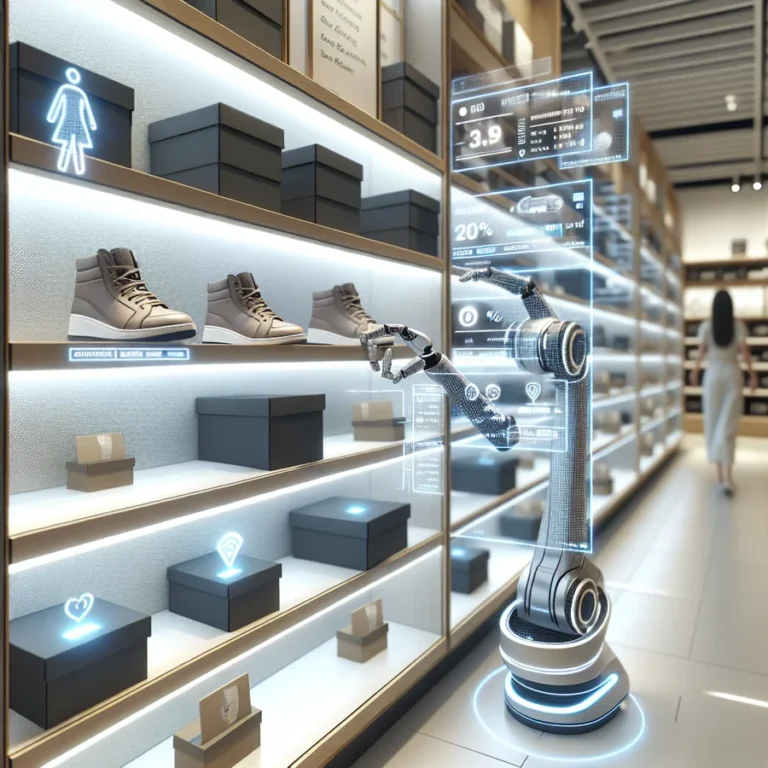Smart Energy Management with AI: Powering a Sustainable Future
Are you concerned about rising energy costs and the impact on our planet? Smart energy management with AI offers a powerful solution. It’s about using artificial intelligence to make our energy consumption more efficient and sustainable. This guide explores how AI is revolutionizing the energy sector, creating a path towards a greener future for everyone.
Imagine a world where energy waste is minimized, renewable sources are seamlessly integrated, and your energy bills are lower. That’s the promise of smart energy management with AI. Let’s dive in and discover how this technology is making a difference.
The Power of Smart Energy Management with AI
AI is changing the way we manage energy. It helps us use energy more efficiently, reduce waste, and integrate renewable energy sources. This leads to lower costs and a smaller environmental footprint.
What is Smart Energy Management?
Smart energy management uses technology to monitor, control, and optimize energy use. It’s like having a smart thermostat for an entire city, adjusting energy flow to meet demand and reduce waste.
How AI Enhances Energy Efficiency
AI algorithms analyze vast amounts of data to predict energy consumption patterns. This allows for proactive adjustments, ensuring energy is used only when and where it’s needed. Think of it as a weather forecast for energy, helping us prepare for peak demand.
Benefits of AI-Powered Energy Solutions
AI offers numerous benefits, including:
- Reduced Energy Consumption: AI optimizes energy usage, leading to significant savings.
- Lower Energy Bills: Efficiency gains translate directly into lower costs for consumers and businesses.
- Integration of Renewables: AI helps manage the variability of renewable energy sources like solar and wind.
- Reduced Carbon Footprint: By using less energy and more renewables, we can shrink our environmental impact.
- Smarter Grids: AI enables more resilient and efficient energy distribution networks.
These benefits create a more sustainable and cost-effective energy future.
Key Applications of AI in Energy Management
AI is being used in many different ways to improve energy management. Let’s explore some key applications.
Smart Grids and AI
Smart grids use AI to optimize energy distribution. AI can predict demand, manage grid stability, and integrate renewable energy sources. This ensures a reliable and efficient energy supply.
AI in Renewable Energy Integration
Renewable energy sources like solar and wind are intermittent. AI helps manage this variability by predicting output and adjusting energy flow accordingly. This makes renewable energy more reliable and usable.
AI for Predictive Maintenance in Energy Infrastructure
AI algorithms can analyze data from sensors to predict equipment failures. This allows for proactive maintenance, preventing costly downtime and ensuring a stable energy supply. It’s like having a crystal ball for energy infrastructure.
AI-Driven Energy Management in Buildings
AI can optimize energy consumption in buildings by analyzing usage patterns and automatically adjusting HVAC (heating, ventilation, and air conditioning) systems. This leads to significant energy savings and improved comfort. For example, AI can be used for AI in architecture design to improve energy efficiency.
Real-World Examples of Smart Energy Management with AI
Many companies are already using AI to improve energy management. Here are a few examples:
GreenTech Innovations: Smart Buildings
GreenTech Innovations uses AI to reduce energy consumption in buildings by 30%. Their system analyzes energy usage and adjusts HVAC operations for optimal efficiency. This saves money and reduces carbon emissions.
AgroAI: Precision Agriculture
AgroAI uses AI and IoT (Internet of Things) to optimize farming practices. Their platform reduces water usage by up to 25% and increases crop yields by 20%. This makes agriculture more sustainable and efficient. Consider the benefits of AI water management in agriculture, which optimizes irrigation and conserves resources.
SaveEat: Reducing Food Waste
SaveEat uses AI to reduce food waste across the supply chain. Their platform helps retailers predict inventory needs and consumers manage food at home. This reduces waste and saves money.
Challenges and Considerations for AI in Energy
While AI offers great potential, there are also challenges to consider.
Data Security and Privacy
AI systems require large amounts of data, raising concerns about data security and privacy. It’s crucial to implement robust security measures to protect sensitive information, which you can learn more about in our guide to AI cybersecurity and data protection.
The Carbon Footprint of AI
AI systems require significant computing power, which can lead to a large carbon footprint. It’s important to use energy-efficient algorithms and optimize data center operations to minimize this impact.
Ethical Considerations
As AI becomes more prevalent, it’s important to consider the ethical implications. This includes ensuring fairness, transparency, and accountability in AI systems. Exploring DeepSeek AI safety development can provide insights into responsible AI practices.
The Future of Smart Energy Management
The future of energy is smart and sustainable. AI will play a key role in optimizing energy consumption, integrating renewables, and creating a more resilient energy system.
AI Factories and European Leadership
The European Commission is investing in AI Factories to boost European leadership in trustworthy AI. This will support the development of AI solutions for the energy sector and other industries.
The Role of IoT and Edge Computing
The Internet of Things (IoT) and edge computing will further enhance energy management. IoT devices provide real-time data, while edge computing allows for faster processing and decision-making. This creates a more responsive and efficient energy system.
Towards a Sustainable and Competitive Future
By embracing smart energy management with AI, we can create a more sustainable and competitive future. This includes reducing energy costs, shrinking our carbon footprint, and fostering innovation in the energy sector.
Conclusion
Smart energy management with AI is transforming the energy landscape. It offers a path towards a more sustainable, efficient, and cost-effective future. By embracing AI-powered solutions, we can reduce energy waste, integrate renewable sources, and create a greener planet for generations to come. The journey towards a sustainable future is powered by innovation, and AI is leading the way. For broader insights into the integration of AI across various sectors, explore the potential for streamlining business workflows with AI.
FAQs
How can AI reduce energy consumption in my home?
AI-powered smart thermostats can learn your heating and cooling preferences and automatically adjust the temperature to save energy. Smart appliances can also optimize their energy usage based on real-time conditions.
What is a smart grid, and how does AI improve it?
A smart grid is an electricity network that uses digital technology to monitor and manage the flow of electricity. AI improves smart grids by predicting demand, optimizing distribution, and integrating renewable energy sources.
How can businesses benefit from AI-driven energy management?
Businesses can benefit from reduced energy costs, improved operational efficiency, and a smaller carbon footprint. AI can optimize energy usage in buildings, manufacturing processes, and transportation systems.
What are the environmental benefits of using AI for energy management?
AI helps reduce greenhouse gas emissions by optimizing energy consumption and integrating renewable energy sources. This contributes to a cleaner environment and a more sustainable future.
Are there any risks associated with using AI in energy management?
Yes, there are risks such as data security and privacy concerns, the carbon footprint of AI systems, and ethical considerations. It’s important to address these risks through robust security measures, energy-efficient algorithms, and ethical guidelines. To further understand data privacy in AI systems, consider reading about DeepSeek’s approach to data privacy.






